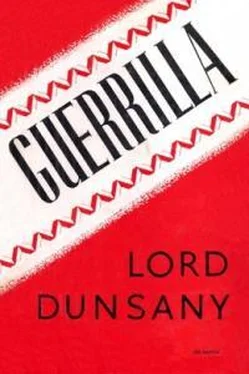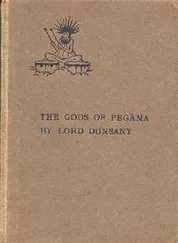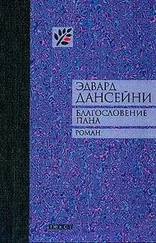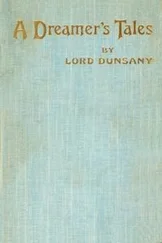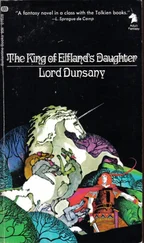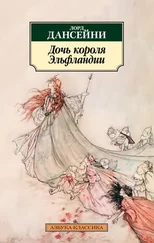Лорд Дансейни - Guerrilla
Здесь есть возможность читать онлайн «Лорд Дансейни - Guerrilla» весь текст электронной книги совершенно бесплатно (целиком полную версию без сокращений). В некоторых случаях можно слушать аудио, скачать через торрент в формате fb2 и присутствует краткое содержание. Год выпуска: 2015, Издательство: epubBooks Classics, Жанр: Прочие приключения, на английском языке. Описание произведения, (предисловие) а так же отзывы посетителей доступны на портале библиотеки ЛибКат.
- Название:Guerrilla
- Автор:
- Издательство:epubBooks Classics
- Жанр:
- Год:2015
- ISBN:нет данных
- Рейтинг книги:5 / 5. Голосов: 1
-
Избранное:Добавить в избранное
- Отзывы:
-
Ваша оценка:
- 100
- 1
- 2
- 3
- 4
- 5
Guerrilla: краткое содержание, описание и аннотация
Предлагаем к чтению аннотацию, описание, краткое содержание или предисловие (зависит от того, что написал сам автор книги «Guerrilla»). Если вы не нашли необходимую информацию о книге — напишите в комментариях, мы постараемся отыскать её.
Guerrilla — читать онлайн бесплатно полную книгу (весь текст) целиком
Ниже представлен текст книги, разбитый по страницам. Система сохранения места последней прочитанной страницы, позволяет с удобством читать онлайн бесплатно книгу «Guerrilla», без необходимости каждый раз заново искать на чём Вы остановились. Поставьте закладку, и сможете в любой момент перейти на страницу, на которой закончили чтение.
Интервал:
Закладка:
Guerrilla
Lord Dunsany
Foreword
The man who told this tale had got to London, after sufferings of which he never spoke. He was full of hope, a hope so firm that it induced in him almost a kind of gaiety, and certainly a fine energy. He was an uncle of the lad of whom the story chiefly tells. And the story went something like this: without details, with few names of persons or places, nor even the name of the country. Something had taught him to mention names rarely, and to believe that German ears were always listening, even in London.
But it is not the names or the places or the lesser details that are important. And I cannot be sure enough that this violent story of mine of this little fraction of the rage of a furious year will last to be read in the calm days that shall come after our war, for me to describe with any more exactitude this story, magnificent in its spirit and hope and courage.
I
The army had surrendered, the Germans were through the mountains; and what was always referred to as The Land, as though in reality there were no other country to care about, was one more particle of the German loot. To men accustomed to horses, the Germans had come with amazing speed; to men who never spoke of a distance by measurement, but only of the time it took to get from one place to another, their pace was bewildering. One day they were ringing their bells in the little capital, for news of a fine stand that one of their divisions had made. The next day the Germans were marching down the main street.
Puzzled citizens were walking slowly about the central square; and, when a man stood up on a dais where tea was usually served in the afternoons, and began to make a speech, there was soon a crowd. A few politenesses and little flatteries, and he began to explain the position. England had begun the war, he explained, by attacking Poland. The Germans had therefore had to establish a defensive position there; and, in order to make this impregnable, they had to occupy several other countries as a purely temporary measure. To these countries they came for the countries' own good, as otherwise England would seize them, and this was particularly the case with The Land. Hitler himself had appointed a Protector for The Land, and, if he were duly obeyed, his protection would be equally shared by all, and The Land would have the advantage of the highest possible culture, which was only to be enjoyed by those nations banded together in the new European order established by Adolf Hitler. Resistance would be most severely punished, and was also useless, because they had no rifles, and could not possibly fight in the plains, where they would be helpless against the big German tanks. Anyone who went into the mountains would be foolish, because the German aeroplanes, of which there were hundreds of thousands, could go over the mountains as easily as tanks could go over the plains, and even quicker. The army had surrendered, and it was the duty of all civilians to maintain order and wear a quiet demeanour. The Germans wished them well, and he reciprocated by calling for three cheers for Adolf Hitler. He got a cheer from a few; the rest were silent; and three men who had not cheered were led away by German policemen and instantly shot.
The sound of the volley from a small wood near by, in which the men were shot, came, as it was intended to come, to the central square. But instead of having an effect, as the Germans had planned, it had two effects. One effect was the one the Germans intended, merely fear; but on most of the crowd the effect was one that the Germans have never understood.
There was no protest: all in the square were unarmed. The crowd moved quickly away from the speaker, and slowly out of the square; Srebnitz was among them, the nephew of the old man who told this story in London. Srebnitz had just left school and not yet gone to the university, where he was due for his first term in a fortnight's time. He went away mournfully, about halfway between the two moods I have mentioned. He went back to his home, where he lived with his father and mother in a street not far from the square. He went into the room in which his parents were sitting. His mother looked up quickly when he came in, but said nothing. His father did not even look up. At last Srebnitz spoke.
"Is The Land finished?" he said.
His father smiled grimly. "That is impossible," he said.
"Oh, no," was his mother's answer to Srebnitz.
"Why is it impossible?" asked the boy.
"After three thousand years of freedom," said his father, "it cannot be lost."
"But why not?" his son asked.
"You don't know what three thousand years are," his father replied. "In all that time freedom grows so hard that it is like a piece of rock at the core of a mountain, that cannot be broken or ground away, and cannot disappear ever."
"We have no rifles," said his son.
His father sighed and shrugged his shoulders, but would not abandon his point. His wife said nothing, but agreed with him and hoped that their son would share his father's point of view. But the son only repeated all the arguments about mountains and tanks and plains that the man had used who had spoken in the square, although he hated the man; and his father had nothing to say against these arguments; for tanks and planes were all new to him, or rather new to his thought: he had heard about them for more than twenty years, but he had not thought of them much. Deep in his thoughts was the old thought of The Land and its three thousand years of story, and he felt that aeroplanes may come and go, and all other inventions that had been on trial as yet for so short a time, while The Land must go on for ever. But he could only repeat that The Land was eternal, and had nothing whatever to say to help Srebnitz when he asked how they could help her. Srebnitz had an air–gun, which for the last five years had been the principal treasure of his life. He used to go up with it into the mountain beyond the city, and sometimes, very rarely, shoot a coney.
"I have my air–gun," he said.
But his father only smiled. Why? thought the boy, and felt the smile was unjust. His father could tell him of no actual deed, no material thing, that could be of any practical use. And when he mentioned one, small but at least something, he only met with derision. Almost he flared up, to defend himself and his air–gun, but he saw his mother's face looking so sad, and his country's case seemed to himself so hopeless, that he walked mournfully away and went up to his own room.
In an air that was vibrating with events, every sound seemed to be magnified. He heard the bronze knocker on their door send echoes through the house, and the trifle altered his mood as a pebble may alter the face of a pond. And it altered it for the better, for his hopes were then at the lowest at which they had ever been, and any change was good. He ran down the stairs with the speed of a man who is expecting a visitor, though he expected nothing; and, opening the door, he found his friend Gregor, a young man who had been at school with him and had left for the university the term before. He was standing there, with his handsome southern face, dark hair and keen eyes, and Srebnitz saw in an instant that that expression of misery, that was in nearly all faces now, was not in Gregor's face. Two women passed, both with tears in their eyes, but Gregor's eyes were flashing, as they usually were when he talked with Srebnitz, and Srebnitz's spirits rose at the sight: here seemed some glimmer of hope where there had been none at all, a light in complete darkness. Perhaps Srebnitz was volatile, but these were times in which all men were volatile.
"What are you going to do?" asked Gregor.
Do? There seemed nothing to do.
Читать дальшеИнтервал:
Закладка:
Похожие книги на «Guerrilla»
Представляем Вашему вниманию похожие книги на «Guerrilla» списком для выбора. Мы отобрали схожую по названию и смыслу литературу в надежде предоставить читателям больше вариантов отыскать новые, интересные, ещё непрочитанные произведения.
Обсуждение, отзывы о книге «Guerrilla» и просто собственные мнения читателей. Оставьте ваши комментарии, напишите, что Вы думаете о произведении, его смысле или главных героях. Укажите что конкретно понравилось, а что нет, и почему Вы так считаете.
